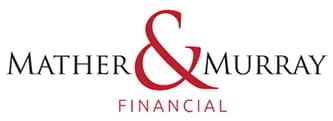Funding Your Pension – Secure Your Retirement Future
How Much Will You Need for Retirement?
One of the most important questions when planning for retirement is:
- When do I want to retire?
- How much income will I need to maintain my lifestyle?
These two questions are closely linked. The later you retire, the less funding you need, as your savings will not have to last as long. However, retiring earlier may require higher contributions to ensure financial security throughout your retirement.
Planning for Retirement – Understanding Pension Contributions
There are two main ways to fund your pension:
- Regular contributions (personal and employer contributions)
- Lump sum contributions
Both come with significant tax benefits that can boost your retirement savings over time.
Personal & Employer Pension Contributions
Employer Pension Contributions – Free Money for Your Retirement
If you are employed, you are likely enrolled in a workplace pension scheme due to automatic enrolment. Your employer contributes a percentage of your salary into your pension, alongside your own contributions.
For example, Sarah earns £40,000 per year. Her employer contributes 5% of her salary (£2,000 per year), while she contributes 5%. This means £4,000 per year is going into her pension – essentially, she is getting an extra £2,000 per year for free towards her retirement.
The more you contribute, the more your employer may also add, depending on your scheme rules. Always check if your employer offers enhanced matching contributions and take advantage of it.
Personal Pension Contributions – The Power of Tax Relief
When you contribute to a pension, you receive tax relief at your highest rate:
- Basic rate taxpayers (20%) – Every £80 you contribute becomes £100 in your pension
- Higher rate taxpayers (40%) – Every £60 becomes £100
- Additional rate taxpayers (45%) – Every £55 becomes £100
For example, Tom is a higher-rate taxpayer and contributes £500 per month to his pension. Thanks to tax relief, the actual cost to him is only £300 per month, but his pension receives the full £500 contribution.
If Tom continued this for 20 years, assuming 5% annual growth, his pension pot could reach £198,000 – despite him only paying £72,000 out of pocket.
Lump Sum Contributions – Boost Your Pension Faster
If you have a bonus, inheritance, or savings, making a lump sum contribution to your pension can have a significant impact due to:
- Tax relief, meaning the government boosts your contribution
- Compound growth, allowing your money to grow tax-free over time
For example, Emily receives a £20,000 bonus from work. She decides to invest the full amount into her pension.
- As a higher-rate taxpayer, she gets 40% tax relief, meaning the actual cost to her is only £12,000.
- If Emily leaves this investment to grow for 15 years at 5% annual return, it could grow to £41,600 – more than three times her net contribution.
This shows how investing early and taking advantage of tax relief can significantly grow your retirement savings.
What If You Are Self-Employed?
If you are self-employed, you do not have an employer making contributions for you. However, you can still contribute to:
- A personal pension
- A Self-Invested Personal Pension (SIPP)
With a SIPP, you have greater control over your investments, allowing you to invest in stocks, funds, and property. Tax relief still applies in the same way, helping you grow your retirement savings efficiently.
If you are a sole trader, you can reduce your taxable income by making pension contributions, potentially lowering your tax bill.
Are You on Track for Retirement?
A cash flow analysis can help you answer:
- Am I saving enough?
- How long will my money last?
- What adjustments should I make now?
By working with a pension adviser, you can model different retirement scenarios and adjust your savings strategy accordingly.
Where Should You Save for Retirement?
A well-rounded retirement strategy may include:
- Pensions – Tax-efficient growth and contributions
- ISAs – Tax-free withdrawals in retirement
- Investment portfolios – Additional flexibility and diversification
Each option has different tax advantages, and a financial adviser can help you structure your savings efficiently.
Why Regular Pension Reviews Are Essential
As you approach retirement, your financial situation will change. Regular pension reviews ensure that:
- Your contributions remain on track
- Your investments align with your risk tolerance
- You are maximising tax efficiency
- You are prepared for legislative changes
It is never too late to adjust your retirement strategy.
Next Steps – Book a Pension Consultation Today
If you are unsure whether you are on track to meet your retirement goals, we can help. At Mather & Murray Financial, we offer independent pension advice to help you:
- Optimise your pension contributions
- Maximise tax relief
- Plan a sustainable income strategy for retirement
Speak to an adviser today to start planning your financial future.
Book a call back or Contact Us today.
Your investments can go down as well as up. You may not get back the amount you invested.

